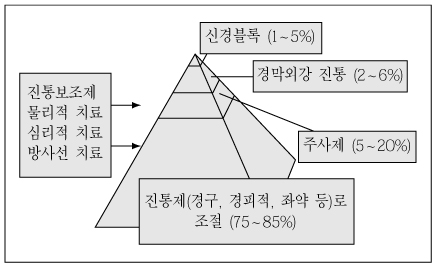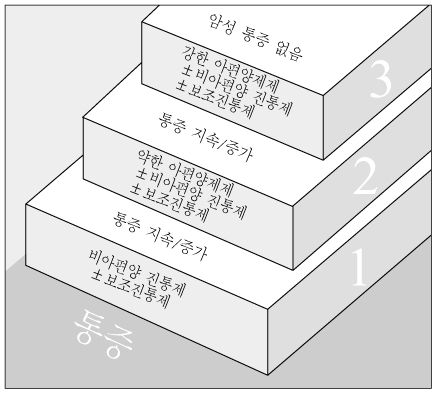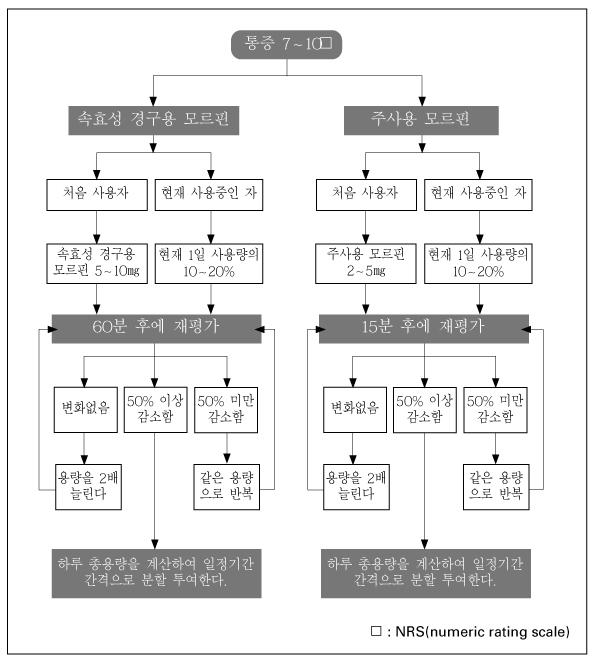J Korean Med Assoc.
2004 Mar;47(3):268-276. 10.5124/jkma.2004.47.3.268.
Pharmacologic Management of Cancer Pain
- Affiliations
-
- 1Department of Internal Medicine, Seoul national University College of Medicine and Hospital, Korea. heo1013@plaza.snu.ac.kr
- KMID: 1723800
- DOI: http://doi.org/10.5124/jkma.2004.47.3.268
Abstract
- Flexibility is important in managing cancer pain. As patients vary in diagnosis, stage of disease, responses to pain and treatments, and personal likes and dislikes, management of cancer pain must be individualized. Patients, their families, and their health care providers must work together closely to manage a patient's pain effectively. The World Health Organization (WHO) developed a 3 step approach for pain management based on the severity of the pain: (1 For mild to moderate pain, the doctor may prescribe a Step 1 pain medication such as aspirin, acetaminophen, or a nonsteroidal antiinflammatory drug (NSAID). 20 When pain lasts or increases, the doctor may change the prescription to a Step 2 or Step 3 pain medication. Most patients with cancerrelated pain will need a Step 2 or Step 3 medication. The doctor may skip Step 1 medications if the patient initially has moderate to severe pain. (3 The patient should take doses regularly, "by mouth, by the clock" (at scheduled times), to maintain a constant level of the drug in the body; this will help prevent recurrence of pain. If the patient is unable to swallow, the drugs are given by other routes (for example, by infusion or injection).
Keyword
MeSH Terms
Figure
Cited by 1 articles
-
Cancer Pain Management-Nonopoid Analgesics
Dong Hee Kim
J Korean Med Assoc. 2010;53(2):164-168. doi: 10.5124/jkma.2010.53.2.164.
Reference
-
1. WHO. Cancer pain relief. 1996. 2nd ed.4. Pain (PDQ). http://www.cancer.gov/cancerinfo/pdq/supportivecare/pain.





